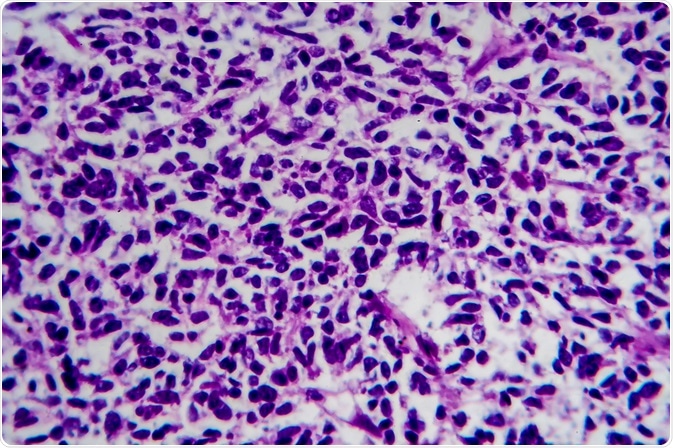When Wilms tumor is suspected based on the presenting symptoms of the patient, a surgical biopsy is needed to confirm the diagnosis. This involves obtaining a tissue sample of the tumor, which is sent to a pathologist who evaluates the histology of the cells and checks for signs of cancer.
Based on the diagnostic results from these tests, people with Wilms tumor should be given timely treatment to avoid the progression of the disease. The specific treatment plan differs for each individual according to the type of disease and level of progression; however, most management plans will involve surgery, chemotherapy, and radiotherapy.
Surgical nephrectomy
If the tumor is localized to the kidney, as is the case for the vast majority of patients with Wilms tumor, the initial treatment involves nephrectomy with the removal of the entire kidney and the contained tumor.
If there are multiple tumors affecting both kidneys, also known as bilateral disease, a section of the kidney will be surgically removed. This ensures that some of the kidney function remains intact and that the renal system of the patient will continue to work unassisted following successful treatment of Wilms tumor.
Adjuvant chemotherapy
Nearly every patient with Wilm’s tumor will require some form of adjuvant chemotherapy as a part of their treatment plan. The only main exception to this treatment protocol is patients with a stage 1 tumor with favorable histology.
The most common chemotherapy regimens for Wilms tumor include:
- Regimen EE-4A with vincristine and dactinomycin for 18 weeks.
- Regimen DD-4A with vincristine, dactinomycin, and doxorubicin for 24 weeks.
- Regimen I with vincristine, doxorubicin, cyclophosphamide, and etoposide for 24 weeks.
The choice of which chemotherapeutic agents to use depends on the severity of the tumor and the patient's prognosis. More aggressive treatments, such as regimen I, are reserved for patients with more severe forms of the disease, as it is associated with greater side effects.

Image Credit: Kateryna Kon / Shutterstock.com
Radiotherapy
As Wilms tumor is usually localized to the abdominal area, radiotherapy can offer localized treatment that is able to specifically target the tumor cells. Radiotherapy is a common option in the treatment of Wilms disease and is typically initiated following surgical nephrectomy and chemotherapy.
Stages of cancer with a favorable prognosis
The stage of cancer is an important factor in the decision of which type of treatment should be administered. For a tumor with favorable histology, such as one without anaplasia, the standard treatment is:
- Stage I: Nephrectomy with lymph node sampling and chemotherapy regimen EE-4A for 18 weeks.
- Stage II: Nephrectomy with lymph node sampling and chemotherapy regimen EE-4A for 18 weeks.
- Stage III: Nephrectomy with lymph node sampling, chemotherapy regimen DD-4A for 24 weeks, and abdominal radiotherapy.
- Stage IV: Nephrectomy with lymph node sampling, chemotherapy regimen DD-4A for 24 weeks, and radiotherapy in abdominal and pulmonary area.
- Stage V: Bilateral renal biopsies followed by preoperative chemotherapy regimen EE-4A or DD-4A. Surgery and adjuvant chemotherapy and radiotherapy to follow, depending on specific characteristics of the disease.
Treatment of anaplastic tumors
Children with Wilms tumor with anaplasia generally have a poorer prognosis as compared to those with favorable histology. As a result, the treatment protocol for these patients usually differs considerably.
Wilms tumor patients with Stage I anaplastic tumors have the best prognosis and can be managed in the same way as those with tumors of favorable histology, with nephrectomy and chemotherapy regimen EE-4A for 18 weeks.
- Stage II: Nephrectomy with lymph node sampling and chemotherapy regimen DD-4A or regimen I for 24 weeks and abdominal radiotherapy.
- Stage III: Nephrectomy with lymph node sampling, chemotherapy regimen DD-4A or regimen I for 24 weeks, and abdominal radiotherapy. Preoperative chemotherapy can also be administered in some cases.
- Stage IV: Nephrectomy with lymph node sampling, chemotherapy regimen DD-4A or regimen I for 24 weeks, and radiotherapy in abdominal and pulmonary area.
- Stage V: Bilateral renal biopsies followed by preoperative chemotherapy regimen EE-4A or DD-4A. Surgery and adjuvant chemotherapy and radiotherapy to follow, depending on specific characteristics of the disease.
References
Further Reading
Last Updated: May 5, 2021